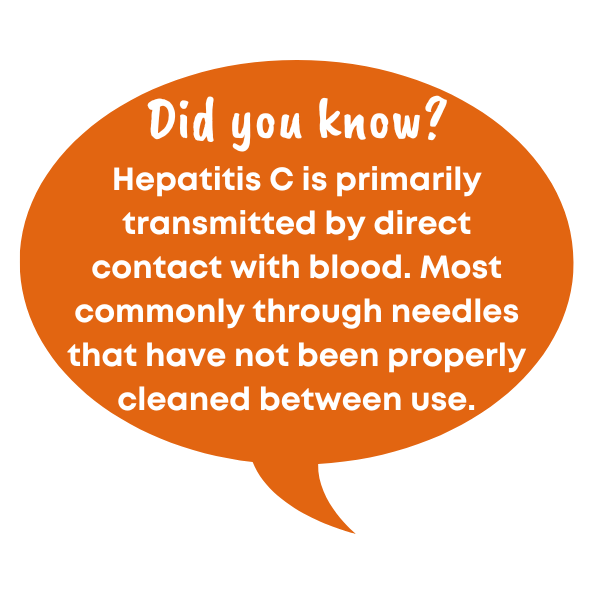Hepatitis C Facts
Hepatitis C (HCV) is the most common chronic bloodborne infection in the United States, with an estimated 2.4 million persons living with chronic infection.
CDC now recommends one-time hepatitis C testing of all adults (18 years and older) and all pregnant individuals during each pregnancy.
Hepatitis C is primarily transmitted by direct contact with blood. The most common way currently is through sharing of needles or other injecting equipment during intravenous drug use that have not been properly cleaned between users.
While not common, hepatitis C can be spread through vaginal or anal sex. According to the Centers for Disease Control and Prevention (CDC), having an STI or HIV, having sex with multiple partners, or rough sex appears to increase a person’s risk for hepatitis C. But again, sexual transmission of hepatitis C is not common.

What are the symptoms
When hepatitis viruses damage liver cells, scar tissue is formed and those cells can no longer function. With fewer healthy liver cells, the body begins to show symptoms ranging from mild (such as fatigue) to more severe symptoms (such as mental confusion).
How can I protect myself?
If you use or inject drugs, become aware of the importance of prevention. Take the following additional steps to reduce personal and public health risks:
Never reuse or share syringes, water, or drug preparation equipment.
Only use syringes obtained from a reliable source (e.g., a syringe services program or a pharmacy).
Use a new, sterile syringe to prepare and inject drugs each time.
If possible, use sterile water to prepare drugs; otherwise, use clean water from a reliable source (e.g., fresh tap water).
Use a new or disinfected container (i.e., cooker) and a new filter (i.e., cotton) to prepare drugs.
Clean the injection site with a new alcohol swab before injection.
All pregnant individuals should be screened with each pregnancy for HCV antibodies at the first prenatal visit in settings where the HCV prevalence is greater than 0.1%
Tell me more about testing and treatment
Although many cases of hepatitis are not a serious threat to health, the disease can sometimes become chronic (long-lasting) and may lead to liver failure and death. In many cases, though, viral hepatitis is a self-resolving illness—meaning it goes away on its own.
Testing should include use of a blood test for the antibody to Hepatitis C. Hepatitis C is curable, and persons with diagnosed HCV infection should be linked to care and treatment. Providers should consult existing guidelines to learn about the latest advances in treating Hepatitis C and with hepatitis specialists, as needed. Persons at high risk for transmitting HCV to others should be treated both for individual benefit and to prevent HCV transmission.

Learn more STI facts and news on the CDC website.
